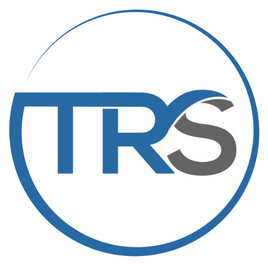How to Become a Qualified Tradie in Australia: A Step-by-Step Guide
If you’re looking to enter one of Australia’s most in-demand career paths, becoming a qualified tradie is a smart move. Skilled trades are the backbone of industries like construction, mining, infrastructure, and manufacturing and there’s a real shortage of hands-on professionals across the country. Whether you’re just out of school or switching careers, here’s…
If you’re looking to enter one of Australia’s most in-demand career paths, becoming a qualified tradie is a smart move. Skilled trades are the backbone of industries like construction, mining, infrastructure, and manufacturing and there’s a real shortage of hands-on professionals across the country.
Whether you’re just out of school or switching careers, here’s a clear step-by-step guide on how to become a qualified tradesperson in Australia.
Step 1: Choose the Right Trade for You
Australia’s trade sector covers a wide range of roles, from carpentry and plumbing to welding, electrical work, and diesel mechanics. Think about your interests, strengths, and the kind of work environment you prefer, indoors, outdoors, technical, mechanical, etc.
Popular trades in 2025 include:
- Boilermaker
- Electrician
- Plumber
- Diesel Mechanic
- HVAC Technician
Step 2: Complete a Pre-Apprenticeship
A pre-apprenticeship course helps you build foundational skills in your chosen trade and improves your chances of landing an apprenticeship. These courses usually last between 8 and 12 weeks and are available through TAFEs and registered training organisations (RTOs).
Tip: A pre-apprenticeship can also help you decide if a trade is the right fit before committing to a longer program.
Step 3: Find and Start an Apprenticeship
An apprenticeship is the main pathway to becoming trade-qualified in Australia. It’s a combination of paid on-the-job training and structured study. Apprenticeships typically last 3 to 4 years depending on the trade.
- Who hires apprentices: Private businesses, large contractors, government projects
- Where to find them: Job boards, direct employer contacts, apprenticeship networks
Step 4: Complete Your Certificate III Qualification
While working through your apprenticeship, you’ll complete a nationally recognised Certificate III in your trade. This qualification is delivered by a registered training provider and covers the theoretical and practical aspects of your role.
Examples include: Certificate III in Carpentry, Certificate III in Engineering Fabrication Trade, Certificate III in Electrotechnology.
Step 5: Obtain Licensing or Registration
Many trades require licensing or registration, particularly electrical, plumbing, and refrigeration roles. Each state has different requirements, so it’s important to check with your local licensing body.
- Electricians: Electrical license required in all states
- Plumbers: Must be registered or licensed, depending on the work
- HVAC Technicians: ARCtick licence for handling refrigerant gases
Step 6: Stay Updated with Safety and Compliance Training
Tradespeople in Australia are expected to keep up with workplace safety standards and ongoing compliance training. You’ll need a White Card to work on construction sites, and other tickets may be required based on the job site and industry.
Bonus: Having tickets like Working at Heights, Confined Spaces, or EWP can improve your employability.
Step 7: Apply for Jobs and Start Your Career
Once you’re trade qualified, the job market is wide open, especially with demand for skilled workers expected to grow through 2025 and beyond. Look for roles with companies that offer stability, ongoing training, and a strong safety culture.
Many employers value candidates who show a commitment to growth and adaptability, especially in trades tied to emerging industries like renewable energy, infrastructure, and advanced manufacturing.
Need Help Getting Started?
TRS Resourcing connects qualified tradespeople and apprentices with top employers across Australia. Whether you’re fresh out of your apprenticeship or looking to upskill in a new area, our recruitment specialists are here to help.
Contact TRS Resourcing today to take the next step in your trade career.
Top Trade Qualifications in Australia: What You Need and Why They Matter

